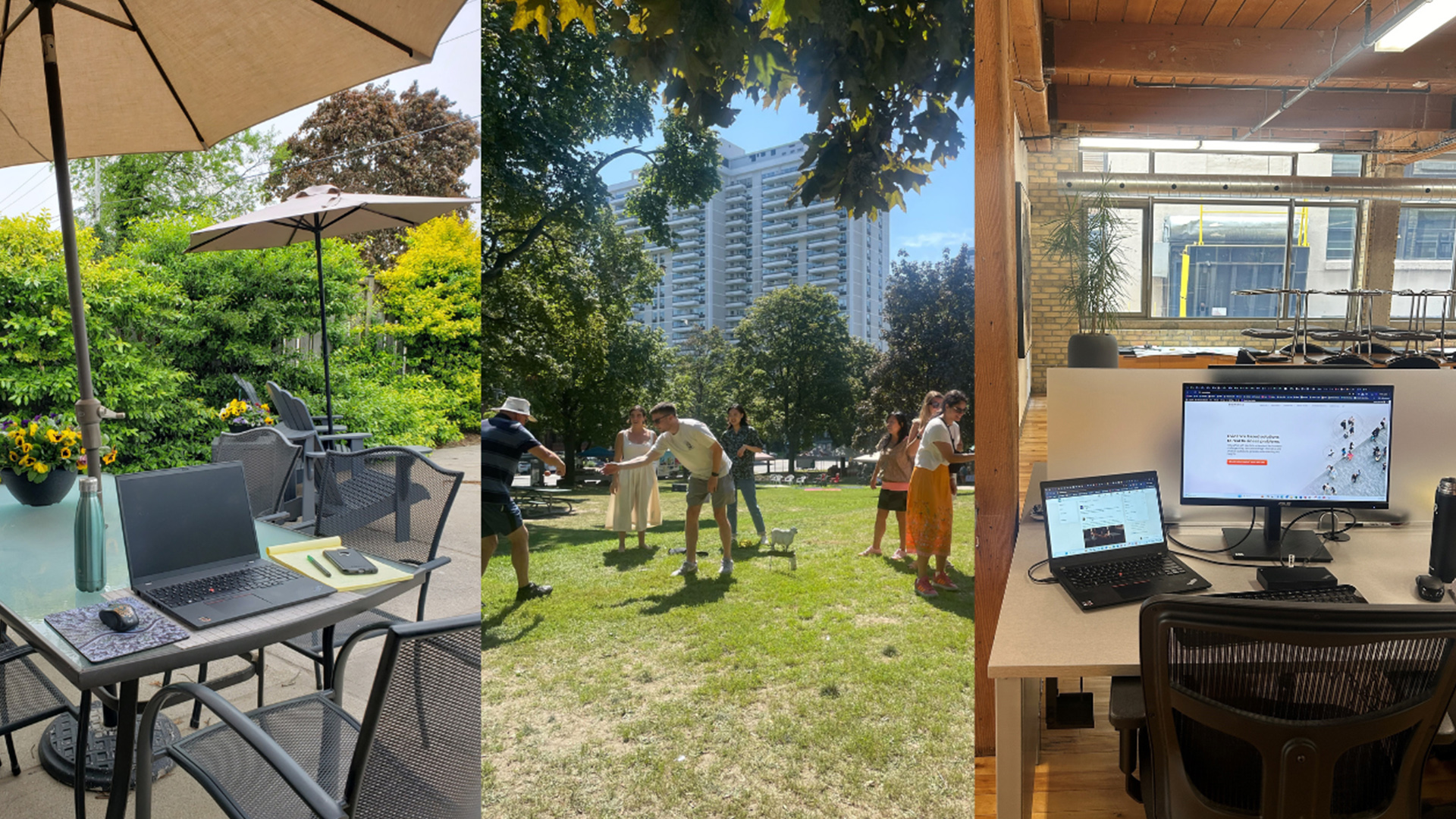How Millennials’ values shape their pursuit of work-life balance
ARTICLE BY ALANNA SAWATZKY
Now ranging in age from 20s into early 40s, Millennials have reached a life stage where career advancement, homeownership (current or aspirational), kids, and other responsibilities are competing for their energy and attention. In a series of interviews designed to complement our Social Values research we spoke to Millennials about their goals for the future, how they spend their time, and what they truly value in life.
Millennials want it all, perhaps because they’ve always been told they could have it all. They want a career that offers financial stability while also giving them space outside work. They want to be recognized for their status and achievements, but they don’t feel defined by their careers.
Although in many cases they’re engaged and satisfied at work, Millennials are quick to point out that they don’t want to “live to work” and are happiest when finding balance in life. In their eyes, a healthy work-life balance is possible – and achieving it is a top priority.
Prioritizing what matters most: self and relationships
When describing how their own generation is distinct from those that came before them, Millennials consistently highlight their own cohort’s tendency to prioritize what’s important to them – self-care, friendships, and family – over things that society prizes, such as work, money, and status. It’s not that Millennials reject career advancement or the financial rewards that can come with increased responsibility. They want to achieve an equilibrium. But as life intensifies, they are increasingly convinced that prioritizing their personal needs is an imperative they can’t ignore. Putting their own priorities first doesn’t necessarily mean being selfish; “me time” can include nurturing strong relationships with others. It can also mean taking time for things that bring them fulfillment and joy – whether pursuing a hobby, attending an exercise class, going for a hike, or writing in their journal. This focus on self-care, family and friends could be a by-product of watching generations before them do the opposite. Millennials have seen their parents and grandparents prioritize work and financial gain, only to perhaps experience negative consequences, such as less time with their young kids, stress and burnout. It could also come from self-reflection and a realization that the increasing pressures of being ‘connected’ all the time creates a need to pull back and focus on what they see as most important in life.
Looking at Environics’ Social Values research, this affinity for self-prioritization makes a lot of sense. Millennials score higher than other generational cohorts on values such as Personal Expression: the desire to develop and express one’s personality, combined with a desire to communicate in an authentic and sincere manner with others. Millennials also stand out on Need for Escape – the desire to regularly escape the stress and responsibilities of everyday life – and Voluntary Simplicity – a willingness to scale back one’s material expectations and concentrate instead on the things that are truly important and that increase quality of life.
Less work, more play
Millennials are far from a monolith. Those we spoke with varied in the extent to which they prioritize their careers: some are content in their work but not defined by it, while others tie much of their identity to their professional achievements. Some Millennial segments – Engaged Idealists, New Traditionalists, and Critical Counterculture –score high on the value Fulfillment through work – a need to invest one’s professional life with meaning and to find personal fulfillment there, while Stoic Independents and Mainstream A-Listers score much lower than their Millennial counterparts in these areas. However, even those who identify strongly with their career and are most interested in making a difference through their work are beginning to recognize the importance of less work and more play – and may be more attracted to employers that will afford them the right balance.
Millennials score lower than other generations on the value Fulfillment through work. This generation also scores low on Duty – the belief that duties and obligations to others should be fulfilled before turning to one’s personal pleasures and interests. These findings from our values research further underscore how Millennials think about the meaning of life. Members of this generation tend to have a sense that both work and personal life can hold meaning and purpose – and that neither should be entirely sacrificed to the other. While they may not have a final answer about the meaning of life, it’s not for a lack of trying; this group is intentionally engaged with life’s big questions (and needs time outside of work to contemplate them).
Millennial free time
Since they’re in pursuit of free time, it’s important to understand what Millennials want to do with that free time. They’re focused on self-fulfillment and activities that bring them back to nature, back to childhood, and back to their true selves. They also like the idea of connecting with their community either through local groups or volunteering initiatives. Brands and activities that offer authenticity and simplicity are likely to resonate with Millennials as they look for relationships with brands they believe in and an organic connection with products and services. This generation are savvy consumers of advertising, having seen the industry expand and permeate itself in all aspects of their lives, and are also likely to appreciate content that’s thoughtfully designed for them and that uses real voices – as opposed to scripted mass communications that feel canned and generic.
Scoring high on the values Financial Concern regarding the future and low on Financial Security, Millennials will be discerning about a product or service and will likely take a close look at a brand’s story to make sure they feel good about their investment, large or small.
While this article has discussed Millennials broadly in comparison with other cohorts, there’s plenty of psychographic diversity within this group – as reflected in our reporting on the six Millennial Social Values segments. In their relationships to work, responsibility, fun, meaning, and many other issues, the six Millennial segments vary, and messages that will resonate with one group might gain little traction with others. Understanding Millennial values can help organizations approach distinct groups within this large, important cohort with design and messages that will truly resonate.
Find out how our team can help your organization
Related insights



Toronto
366 Adelaide Street West
Suite 101, Toronto, ON
Canada M5V 1R9
416 920 9010
Ottawa
135 Laurier Ave W.
Ottawa, ON
Canada K1P 5J2
613 230 5089
Calgary
421 7th Ave SW
Suite 3000, Calgary, AB
Canada T2P 4K9
403 613 5735
